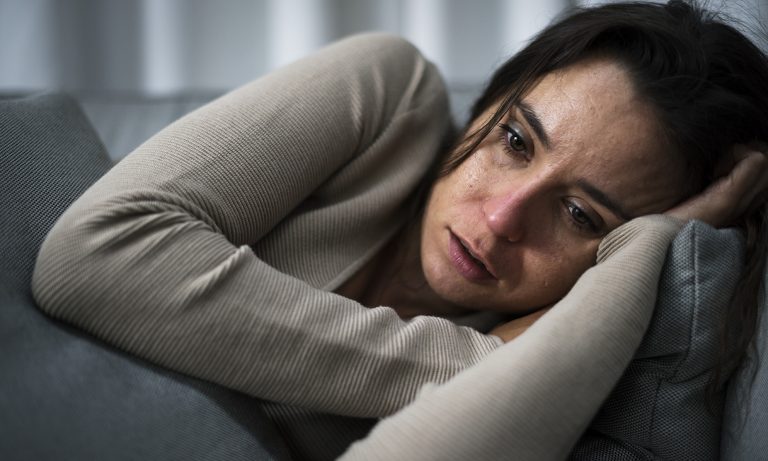Do you worry when you face problems at work or stress Life? The body becomes anxious when it faces this worry. This is known as Anxiety. It is a very common and normal emotion.
It is a way for the human body to cope up with stress and tension by alerting the body to a possible threat in the future. You might feel anxious about taking an important decision in your life or taking any kind of risk.
It is normal to feel anxious occasionally. But, a precise Anxiety disorder is a separate concept. It is a collection of mental illnesses that create consistent and excessive anxiety coupled with fear.

The overwhelming anxiety shall make you avert work, studies, and other kinds of gatherings that can worsen the anxiety. However, anxiety disorders can be treated with effective treatment.
There are different kinds of Anxiety disorders like:-
- Generalized anxiety disorder- You might feel extra and unnatural stress and worry over small or no reason.
- Panic disorder- It is a feeling of sudden and excessive fear that triggers a panic attack. The panic attack might cause excessive sweat and chest pain. The heart starts to ponder fast also known as palpitations. It gives a choking feeling like a heart attack.
- Social Anxiety Disorder- Social Anxiety Disorder is a kind of social phobia when a person feels excessive stress and self-consciousness in social interaction or circumstances. People become obsessed over others judging them. They might also feel embarrassed in social situations.
- Particular phobias- This is an extreme fear arising from a particular object or situation. Some people have phobias or fear from heights, or deep water. Sometimes the fear may force a person to alter ordinary situations.

- Agoraphobia- It creates an excessive fear where a person is in a particular place or situation. He/she might find it impossible or very difficult to escape the situation in case of an emergency. This stress normally occurs during flight travel, traveling in public transport, or standing in a crowd.
- Anxiety caused by medications- The consumption of particular medicines or illegal drug abuse causes overwhelming anxiety. This might also occur in case of withdrawal effects of particular medicine or substances.
- Selective Mutism- This is a kind of social Anxiety that some kids possess. They talk normally and comfortably in the home environment but don’t speak in public situations like social gatherings or school.
- Separation Anxiety- Everyone feels that it is normal for kids to have anxiety and fear when they are separated from their loved ones. But, this anxiety can occur to people of all age groups in a similar manner. People of all age groups might have a feeling where they get anxious or excessive fear of when a loved one goes out of their sight. This anxiety can get worse with time.
The symptoms of anxiety disorders are:-
The prime symptom of the anxiety disorder is overwhelming fear and anxiety. The anxiety issue can make it difficult to eat, sleep, concentrate or even breathe. But, some other symptoms can be:-
- Panic
- Excessive stress
- Fear
- Doom
- A constant feeling of threat
- Tingling hands or fingers
- Becoming numb and sweaty with stress
- Shortness of breath

- Dry mouth with uneasiness
- Becoming obsessive to avoid fearful objects or places
- Lack of concentration
- Consistently worrying over a problem
- Dizziness and nausea
- Heart palpitations
- Insomnia
- Headache
- Racing thoughts
- Restlessness
- Sleep issues
- Trembling
What are the common causes of anxiety disorders?
The causes of anxiety disorders are very complicated. It’s yet not confirmed by any research about the particular and precise cause of anxiety disorder.

But, there can be a combination of things and situations that cause anxiety disorders. Some of the common causes of anxiety disorders are:-
- Genetics- Anxiety disorder can be a common disorder among family members.
- Brain chemistry- Many researchers say that anxiety disorder may be related to any fault in the brain chemistry that is responsible for controlling the fear in emotions.
- Stress- The stressful situation in life can trigger anxiety disorder. The stressful situations and events in life can trigger anxiety disorders like childhood abuse, losing your loved ones, or witnessing violence.
- Drug abuse- Many times drugs are used to deal with anxiety symptoms. This consumption of alcohol or drugs can cause anxiety.
- Medical issues- Many times heart or lung conditions can trigger anxiety symptoms or make it worse.
What are the risk factors linked with an Anxiety disorder?
Many things might trigger an anxiety disorder that is known as a risk factor. Many times risk factors are the same but, sometimes they change. Risk factors related to an Anxiety disorder are:-

- The previous episode of Mental health disorder- Many times a mental health disorder, like Depression can increase the risk for anxiety disorder.
- Childhood abuse experience- Emotional, physical, or Sexual abuse experienced in childhood can trigger anxiety issues in future life.
- Traumatic episodes- Many times people come across traumatic situations in life that are followed by posttraumatic stress. This can risk causing anxiety disorder.
- Negative experiences in life- Some stressful and negative experiences in life can be a potential risk of anxiety disorder.
- Serious illnesses- The stress over a loved one’s health or a worry for someone with a serious illness might cause anxiety issues.
- Substance abuse- The use of alcohol or drugs can trigger anxiety disorders.
- Shy nature in childhood- Shyness and withdrawal from strangers or unknown places can cause social anxiety in later life.
- Lack of self-esteem- Negative outlook towards oneself might cause anxiety issues.
How are anxiety disorders diagnosed?
If you have experienced any or a combination of the symptoms mentioned above then it’s important to contact a mental health professional. This can include sharing medical history cases and taking lab tests to assure the absence of other medical conditions that might cause the above symptoms. There is no particular diagnosis that can assure anxiety disorder.

Once a medical health professional confirms that there is no medical issue that might cause the symptoms, then they can refer you to a psychiatrist. They might ask questions and use some techniques to find the presence of an anxiety disorder.
The medical health professional can further describe how long you have been suffering from an anxiety disorder. They might also tell about the level of intense nature of anxiety disorder.
What is the relevant treatment for anxiety disorders?
There are a variety of treatments to decrease and cope up with the symptoms of anxiety disorders. The most common techniques of treatment are counseling and medicines.
Medications– Many kinds of medicines are prescribed to treat anxiety problems. It is important to consult a medical professional or mental health expert to understand the benefits and side-effects of medicine and understand the relevant medicine in your particular case. Some common medications used for treating anxiety disorders are:-
- Antidepressants
- Bupropion
- Benzodiazepines
- Beta-blockers
- Anticonvulsants
- Antipsychotics
- Buspirone (BuSpar)

Some techniques to manage Anxiety disorder symptoms are:-
- Learn about your disorder- Knowing more about this problem will help to avoid risk factors and cope up with the symptoms.
- Stick to the prescribed treatment- It is important to follow the prescribed treatment with discipline and avoid sudden stopping of treatment.
- Reduce the intake of food with caffeine
- Stop alcohol and drug abuse
- Eat healthy food and do regular exercise
- Get plenty of sleep
- Learn new ways to relax and deal with stress
- Maintain a daily journal and engage in recreational activities
- Hang out with friends and family
- Deal with negative thoughts effectively
- Seek professional support
- Don’t consume any medicines without a professional consultation
Source: https://thesecondangle.com/anxiety-disorders-treatments/
Also Read : Nurses – Living Martyrs






















